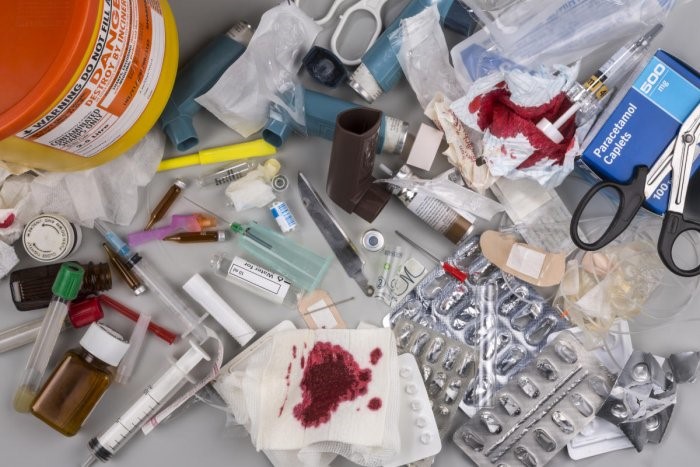Reduce Infections Through Proper Medical Waste Management
8/24/2021

Proper management of medical waste is one of the toughest challenges that the medical community handles every day. Did you know that appropriate medical waste management can prevent infections from spreading? Here’s how to prevent the spread of diseases through the right medical waste management.
What is Medical Waste?
Medical waste can be defined as any type of waste, organic or inorganic, containing infectious substances or substances that can infect living organisms. Wastes such as these are often produced by healthcare institutions or similar facilities such as hospitals and laboratories.
The different types of medical wastes are:
● Blood, bodily fluids, and materials contaminated by these
● Discarded body tissues from patients during surgery
● Wastes created by patients
● Infectious cultures
● Radioactive wastes
● Discarded vaccines
How Can Medical Waste Management Reduce Infections?
Medical Wastes can infect people if they are not discarded or treated properly. Four different groups can be affected by improper medical waste management. These are:
● Patients
● Medical Practitioners
● Waste Management Staff
● Public
For example, a patient has been diagnosed with a highly infectious viral disease. Medical practitioners would attend to the patient. But suppose the medical items used on the patient are not discarded properly. In that case, it could spread from one patient to another via the medical staff, then to fellow medical practitioners.
The waste management staff could also be infected if they do not have the proper equipment. If these wastes are not disposed of correctly on waste treatment plants, this could spread to the general public and create an epidemic.
To reduce this event, proper waste management is necessary to safeguard the health status of every living being on this planet.
What is Medical Waste?
Medical waste can be defined as any type of waste, organic or inorganic, containing infectious substances or substances that can infect living organisms. Wastes such as these are often produced by healthcare institutions or similar facilities such as hospitals and laboratories.
The different types of medical wastes are:
● Blood, bodily fluids, and materials contaminated by these
● Discarded body tissues from patients during surgery
● Wastes created by patients
● Infectious cultures
● Radioactive wastes
● Discarded vaccines
How Can Medical Waste Management Reduce Infections?
Medical Wastes can infect people if they are not discarded or treated properly. Four different groups can be affected by improper medical waste management. These are:
● Patients
● Medical Practitioners
● Waste Management Staff
● Public
For example, a patient has been diagnosed with a highly infectious viral disease. Medical practitioners would attend to the patient. But suppose the medical items used on the patient are not discarded properly. In that case, it could spread from one patient to another via the medical staff, then to fellow medical practitioners.
The waste management staff could also be infected if they do not have the proper equipment. If these wastes are not disposed of correctly on waste treatment plants, this could spread to the general public and create an epidemic.
To reduce this event, proper waste management is necessary to safeguard the health status of every living being on this planet.
